Scientific Advisory Board
In 2017 CMM formed a Scientific Advisory Board to guide the future development of the Centre. The Board develops and discusses future strategic planning and resources for CMM, based on users future needs.
Members of the Board, which also include our partner institutions Queensland University of Technology (QUT), Griffith University and the University of the Sunshine Coast (USC), provide scientific and technical guidance, or request CMM to follow-up in the fields of emerging technology, applications of microscopy and microanalysis and procedures for CMM facilities.
Professor Robert Parton, CMM Deputy Director Life-Science, chairs the Scientific Advisory Board in the current term.
Also on the Board is Professor Roger Wepf representing CMM.
The Board meets twice a year. Please find more details on the engaging scientific board members below.
Professor Charlotte Allen (Queensland University of Technology)
Professor Charlotte Allen is the Director of QUT's Central Analytical Research Facility (CARF) which provides specialist equipment and expert scientists to help researchers and industry carry out analytical research. The facility's state-of-the-art equipment and expert technologists offer transdisciplinary analytical support, including sample preparation, data collection and interpretation of results. The laboratories include: sample preparation of hard materials (crushing, thin sections), genomics, proteomics, small molecule mass spectrometry, surface science, physical and mechanical processes, light, electron and ion beam microscopy, X-ray, vibrational spectroscopy and elements and isotopes.
Professor Allen is an expert in the chemistry and structure of granites and her approach covers field work (large and medium scale) to the micron scale, studying granite as the main constituent of the earth's crust. She has 20 year’s experience running an ICPMS facility (solution and laser) and has used this instrumentation to date minerals (zircon and other U-Pb bearing minerals), look at diffusion profiles in natural and experimentally produced minerals, determine trace element contents of minerals and rocks including very rare elements like Pt and Au. Recently, she has been extending laser-ICPMS techniques to the accurate trace element analysis of organic compounds (plants, hair).
She was employed at the Research School of Earth Sciences at the Australian National University for 20 years before moving to QUT in early 2013 to oversee the CARF elements and Isotopes laboratory.
Professor Paul Young
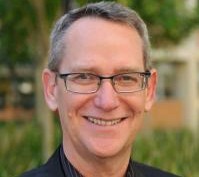 Professor Young completed his PhD at the London School of Hygiene and Tropical Medicine and was appointed to a lectureship in the University of London in 1986. He returned to Australia as Senior Research Fellow at the Sir Albert Sakzewski Virus Research Centre in 1989 and joined the University of Queensland as a Senior Lecturer in 1991. He is the current President of the Australian Society for Microbiology and the President of the Asia Pacific Society for Medical Virology.
Professor Young completed his PhD at the London School of Hygiene and Tropical Medicine and was appointed to a lectureship in the University of London in 1986. He returned to Australia as Senior Research Fellow at the Sir Albert Sakzewski Virus Research Centre in 1989 and joined the University of Queensland as a Senior Lecturer in 1991. He is the current President of the Australian Society for Microbiology and the President of the Asia Pacific Society for Medical Virology.
Professor Ian Gentle
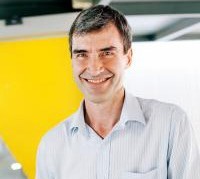 Professor Ian Gentle joined The University of Queensland in 1993 and is currently Professor of Physical Chemistry in the School of Chemistry and Molecular Biosciences. He has served in a number of leadership roles including Head of Science of the Australian Synchrotron in 2008-2010, Associate Dean (Research) in the Faculty of Science (2013-2018) and Deputy Executive Dean, Faculty of Science (2015-2018).
Professor Ian Gentle joined The University of Queensland in 1993 and is currently Professor of Physical Chemistry in the School of Chemistry and Molecular Biosciences. He has served in a number of leadership roles including Head of Science of the Australian Synchrotron in 2008-2010, Associate Dean (Research) in the Faculty of Science (2013-2018) and Deputy Executive Dean, Faculty of Science (2015-2018).
Professor Peter Hayes
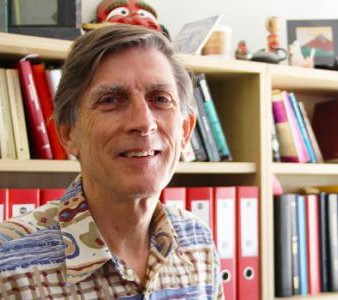 Professor Hayes is Professor of Metallurgical Engineering within the School of Chemical Engineering. He is currently the Metallurgical Engineering Program leader and is senior researcher in the Pyrometallurgy Research Group (PYROSEARCH). He received his PhD from the University of Strathclyde in Glasgow, Scotland, in 1974.
Professor Hayes is Professor of Metallurgical Engineering within the School of Chemical Engineering. He is currently the Metallurgical Engineering Program leader and is senior researcher in the Pyrometallurgy Research Group (PYROSEARCH). He received his PhD from the University of Strathclyde in Glasgow, Scotland, in 1974.
Dr Ruth Knibbe
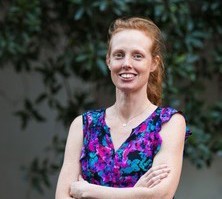 Dr Knibbe’s research interests are in materials for energy generation and storage with specific interest in electrochemistry and electron microscopy. She received her PhD in Chemical Engineering from UQ in 2007. She then spent four years at DTU-Energy (Danish Technical University) and subsequently five years at the Robinson Research Institute at Victoria University of Wellington. Dr Knibbe’s interests are concerned with: in-situ methods for characterising fuel cell and battery materials, the application of machine learning in new material design, development of new materials for Li-S battery systems and understanding degradation mechanisms in fuel cell and battery systems.
Dr Knibbe’s research interests are in materials for energy generation and storage with specific interest in electrochemistry and electron microscopy. She received her PhD in Chemical Engineering from UQ in 2007. She then spent four years at DTU-Energy (Danish Technical University) and subsequently five years at the Robinson Research Institute at Victoria University of Wellington. Dr Knibbe’s interests are concerned with: in-situ methods for characterising fuel cell and battery materials, the application of machine learning in new material design, development of new materials for Li-S battery systems and understanding degradation mechanisms in fuel cell and battery systems.
Professor Roland De Marco (Fiji National University)
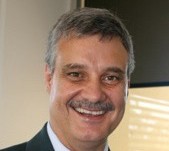 Professor Roland De Marco is Pro Vice-Chancellor at Fiji National University since 2021. Before that he was deputy Vice Chancellor (Research and Infrastructure) at the University of the Sunshine Coast (USC). Prior to his roles at USC, he served as Professor of Chemistry and Associate Deputy Vice-Chancellor (Research Strategy), Dean of Research in Science and Engineering and Head of Chemistry at Curtin University from 2001-2011. Throughout all of his leadership roles, both past and present, he has maintained an active research profile leading a small group focussed on the characterization of electromaterials, especially chemical sensor, fuel cell and electrocatalyst materials. Since 2015, he has held Honorary Professorships in the School of Chemistry and Molecular Biosciences at UQ and the Fuels and Energy Technology Institute at Curtin University.
Professor Roland De Marco is Pro Vice-Chancellor at Fiji National University since 2021. Before that he was deputy Vice Chancellor (Research and Infrastructure) at the University of the Sunshine Coast (USC). Prior to his roles at USC, he served as Professor of Chemistry and Associate Deputy Vice-Chancellor (Research Strategy), Dean of Research in Science and Engineering and Head of Chemistry at Curtin University from 2001-2011. Throughout all of his leadership roles, both past and present, he has maintained an active research profile leading a small group focussed on the characterization of electromaterials, especially chemical sensor, fuel cell and electrocatalyst materials. Since 2015, he has held Honorary Professorships in the School of Chemistry and Molecular Biosciences at UQ and the Fuels and Energy Technology Institute at Curtin University.
Professor Darren Martin
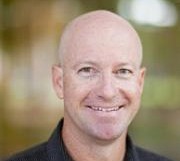 Professor Darren Martin is a global leader in polyurethanes, polymer nanocomposites and renewable nanomaterials, with a proven track record in “end-to-end innovation”. The Martin Group takes fundamental discoveries and learnings in materials science and biology and progresses the science, engineering, regulation and translation of these technologies for the benefit of Queensland and Australia. Current active platforms include the unique cellulose nanofibres from Australian spinifex arid grasses, and organosilicate nano additives being commercialised by the AIBN spin-out company TenasiTech Pty Ltd.
Professor Darren Martin is a global leader in polyurethanes, polymer nanocomposites and renewable nanomaterials, with a proven track record in “end-to-end innovation”. The Martin Group takes fundamental discoveries and learnings in materials science and biology and progresses the science, engineering, regulation and translation of these technologies for the benefit of Queensland and Australia. Current active platforms include the unique cellulose nanofibres from Australian spinifex arid grasses, and organosilicate nano additives being commercialised by the AIBN spin-out company TenasiTech Pty Ltd.
Professor Fred Meunier
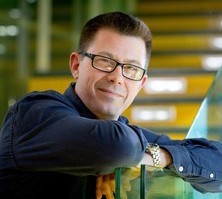 Professor Frederic Meunier was the recipient of a European Biotechnology Fellowship and went on to postgraduate work at the Department of Biochemistry at Imperial College (1997-1999) and at Cancer Research UK (2000-2002) in London, UK. After a short sabbatical at the LMB-MRC in Cambridge (UK), he became a group leader at the School of Biomedical Sciences at The University of Queensland in 2003. He joined UQs Queensland Brain Institute in 2007 and is currently part of the Centre for Ageing Dementia Research.
Professor Frederic Meunier was the recipient of a European Biotechnology Fellowship and went on to postgraduate work at the Department of Biochemistry at Imperial College (1997-1999) and at Cancer Research UK (2000-2002) in London, UK. After a short sabbatical at the LMB-MRC in Cambridge (UK), he became a group leader at the School of Biomedical Sciences at The University of Queensland in 2003. He joined UQs Queensland Brain Institute in 2007 and is currently part of the Centre for Ageing Dementia Research.
Associate Professor Peter Noakes
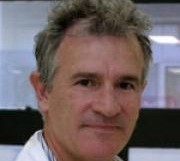 Associate Professor Peter Noakes is investigating the cell and molecular mechanisms that underlie the development and breakdown of the neuro-motor system. His laboratory works on the following: 1) cell and molecular mechanisms surrounding the establishment of neuromuscular and motor neuron (CNS) synapses. 2) The generation and development of motoneurons in health and in disease (e.g. motor neuron disease {ALS}). 3) The role of innate immune system in motor neuron health and disease. His laboratory employs biochemistry, immuno-histology, electrophysiology, live cell imaging, behaviour, cell and molecular biology to study these issues.
Associate Professor Peter Noakes is investigating the cell and molecular mechanisms that underlie the development and breakdown of the neuro-motor system. His laboratory works on the following: 1) cell and molecular mechanisms surrounding the establishment of neuromuscular and motor neuron (CNS) synapses. 2) The generation and development of motoneurons in health and in disease (e.g. motor neuron disease {ALS}). 3) The role of innate immune system in motor neuron health and disease. His laboratory employs biochemistry, immuno-histology, electrophysiology, live cell imaging, behaviour, cell and molecular biology to study these issues.
Professor Gordon Southam
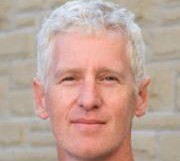 Professor Gordon Southam received his BSc (Honours) and PhD in Microbiology from the University of Guelph. He joined the Departments of Earth Science and Biology at the University of Western Ontario when he was appointed Canada Research Chair in Geomicrobiology (2001-2011), and Director of the Centre for Environment and Sustainability (2010-2012). In 2012, Professor Southam joined the School of Earth Sciences at The University of Queensland as the Vale-UQ Geomicrobiology Chair.
Professor Gordon Southam received his BSc (Honours) and PhD in Microbiology from the University of Guelph. He joined the Departments of Earth Science and Biology at the University of Western Ontario when he was appointed Canada Research Chair in Geomicrobiology (2001-2011), and Director of the Centre for Environment and Sustainability (2010-2012). In 2012, Professor Southam joined the School of Earth Sciences at The University of Queensland as the Vale-UQ Geomicrobiology Chair.
Professor Jenny Stow
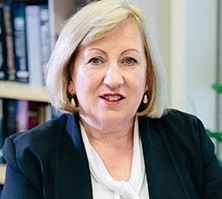 Professor Jenny Stow undertook postdoctoral training at Yale University’s School of Medicine as a Fogarty International Fellow. She was soon appointed Assistant Professor in the renal unit at Massachusetts General Hospital, where she established an independent research group in cell biology. She returned to Australia in 1994 as a Wellcome Trust Senior International Fellow to join UQ’s Centre for Molecular and Cellular Biology (now IMB). Professor Stow leads her own IMB laboratory.
Professor Jenny Stow undertook postdoctoral training at Yale University’s School of Medicine as a Fogarty International Fellow. She was soon appointed Assistant Professor in the renal unit at Massachusetts General Hospital, where she established an independent research group in cell biology. She returned to Australia in 1994 as a Wellcome Trust Senior International Fellow to join UQ’s Centre for Molecular and Cellular Biology (now IMB). Professor Stow leads her own IMB laboratory.
Professor Lianzhou Wang
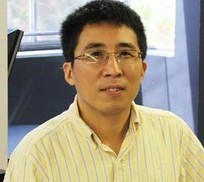 Lianzhou Wang is Professor in the School of Chemical Engineering and Director of Nanomaterials Centre, the University of Queensland. His research focuses on the synthesis and application of semiconductor nanomaterials for use in renewable energy conversion/storage systems including photocatalysts, rechargeable batteries and low cost solar cells. Wang received his PhD degree from Chinese Academy of Sciences in 1999. Before joining UQ in 2004, he has worked at two leading national research institutions (NIMS and AIST) of Japan as a research fellow for five years. Since joining UQ, he has worked/working as ARC Queen Elizabeth II Fellow (2006), Senior Lecturer (2007), Associate Professor (2010), and Professor (2012-) in School of Chemical Engineering, and Senior Group Leader of Australian Institute for Bioengineering and Nanotechnology, UQ.
Lianzhou Wang is Professor in the School of Chemical Engineering and Director of Nanomaterials Centre, the University of Queensland. His research focuses on the synthesis and application of semiconductor nanomaterials for use in renewable energy conversion/storage systems including photocatalysts, rechargeable batteries and low cost solar cells. Wang received his PhD degree from Chinese Academy of Sciences in 1999. Before joining UQ in 2004, he has worked at two leading national research institutions (NIMS and AIST) of Japan as a research fellow for five years. Since joining UQ, he has worked/working as ARC Queen Elizabeth II Fellow (2006), Senior Lecturer (2007), Associate Professor (2010), and Professor (2012-) in School of Chemical Engineering, and Senior Group Leader of Australian Institute for Bioengineering and Nanotechnology, UQ.
Professor Huijun Zhao (Griffith University)
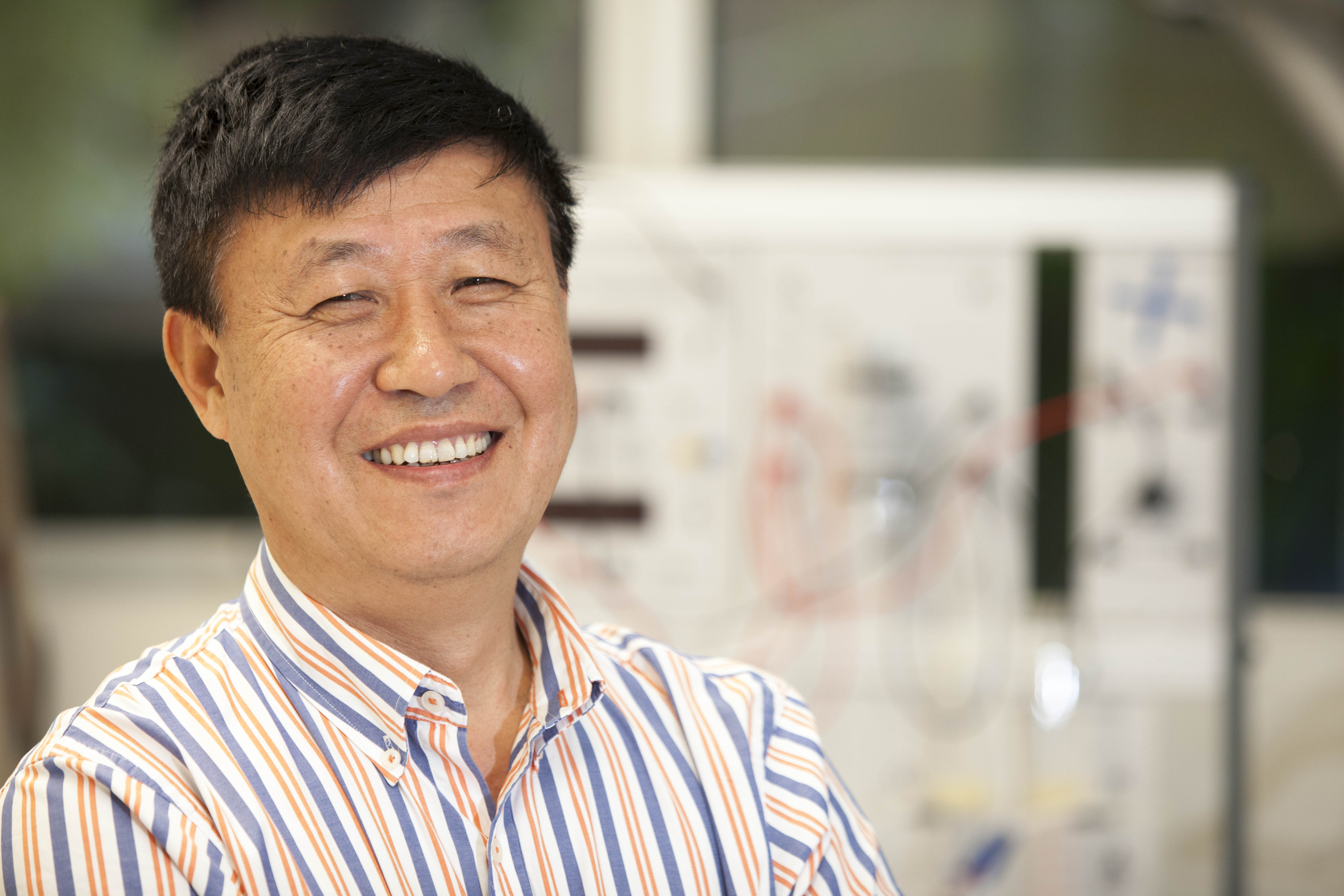 Huijun Zhao is a Professor and the Director of the Centre for Clean Environment and Energy at Griffith University. He has expertise in energy and environmental materials, water source control and management systems, field-based sensing technologies and aquatic environmental quality assessment. One of his current pursuits is to explore new means to unlock the catalytic powers of nonprecious materials as high performance catalysts for important catalysis reactions.
Huijun Zhao is a Professor and the Director of the Centre for Clean Environment and Energy at Griffith University. He has expertise in energy and environmental materials, water source control and management systems, field-based sensing technologies and aquatic environmental quality assessment. One of his current pursuits is to explore new means to unlock the catalytic powers of nonprecious materials as high performance catalysts for important catalysis reactions.
Associate Professor Joy Wolfram
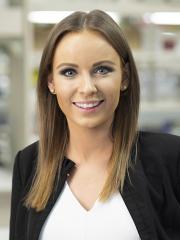 Associate Professor Joy Wolfram leads a nanomedicine and extracellular vesicle research program with the goal of developing innovative approaches that bring the next generation of treatments and diagnostics directly to the clinic. She has joint appointments in the School of Chemical Engineering and the Australian Institute for Bioengineering and Nanotechnology. Her research program has three main focus areas: 1) developing improved methods for extracellular vesicle isolation from human biofluids, 2) designing hybrid drug delivery systems with extracellular vesicle and synthetic components for a ‘best-of-both-worlds’ approach to treat inflammatory conditions, and 3) understanding the role of extracellular vesicles in breast cancer metastasis.
Associate Professor Joy Wolfram leads a nanomedicine and extracellular vesicle research program with the goal of developing innovative approaches that bring the next generation of treatments and diagnostics directly to the clinic. She has joint appointments in the School of Chemical Engineering and the Australian Institute for Bioengineering and Nanotechnology. Her research program has three main focus areas: 1) developing improved methods for extracellular vesicle isolation from human biofluids, 2) designing hybrid drug delivery systems with extracellular vesicle and synthetic components for a ‘best-of-both-worlds’ approach to treat inflammatory conditions, and 3) understanding the role of extracellular vesicles in breast cancer metastasis.
Associate Professor Liza Forbes
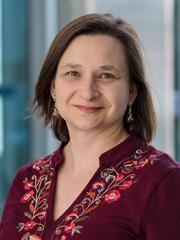 Dr Liza Forbes specialises in mineral flotation, with specific focus on flotation reagent chemistry, mineral surface chemistry and base-metal sulphide electrochemistry. Her main interest lies in integrating fundamental and applied aspects of flotation research, to develop new and improved processing technologies.
Dr Liza Forbes specialises in mineral flotation, with specific focus on flotation reagent chemistry, mineral surface chemistry and base-metal sulphide electrochemistry. Her main interest lies in integrating fundamental and applied aspects of flotation research, to develop new and improved processing technologies.
